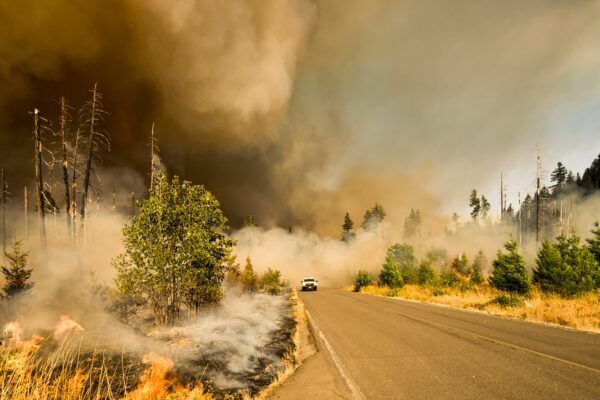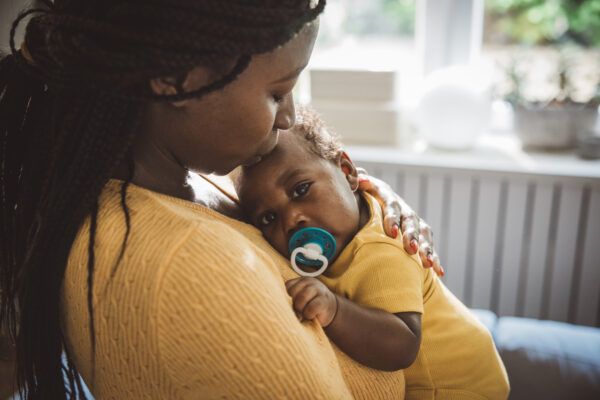Air pollution is a global health emergency and environmental crisis. Sharing evidence and learning is crucial to strengthening the clean air movement. Here, we take a look at the latest news and efforts to tackle air pollution around the world.
WHO launches groundbreaking air pollution training for health workers
The World Health Organization (WHO) launched a new toolkit to help health workers understand the health risks of air pollution and identify risk reduction measures. The toolkit will support health workers to use the public health argument to advocate for clean air interventions, and promote the collaboration between civil society actors and governmental institutions.
Women living in cities give birth to smaller babies
A new study has revealed that women living in cities – who are exposed to higher air pollution – give birth to lighter babies. A team of researchers looked at over 4,000 children living in five countries across Europe, measuring the levels of air pollution in the areas where the mothers lived. The results revealed that women living in places with higher levels of pollution from traffic fumes and emissions give birth to babies 56g lighter, compared to those in areas with lower pollution.
WHO’s second ever conference on air pollution and health to take place in Accra
Dr Maria Neira, Director of Public Health at the WHO announced that the WHO’s second conference on air pollution and health is set to take place in Accra, Ghana, in October 2024. “Every single day we have news, scientific evidence and papers published demonstrating even more damage caused by exposure to air pollution,” said Neira. “In addition to the death, which is already horribly dramatic, we need to keep in mind that we are talking about chronic diseases… [that] take away quality of life and bring costs for health systems.”
Exposure in the womb negatively impacts stress response of newborns
A new study measured exposure to two pollutants associated with traffic fumes and emissions, as well as 11 proteins found in the cord blood of over 400 healthy newborns. High levels of NO2 correlated with initiating autophagy – the body’s cellular recycling system which sees the “self-eating” of damaged cells in response to stress. The study was led by Dr Olga Gorlanova, a research physician at the University Children’s Hospital, University of Basel, Switzerland, and published by the European Respiratory Society.
Union for International Cancer Control calls for action on clean air
For the first time, a medical alliance focused on cancer is calling for urgent action on air pollution to combat rising cancer risks. Dr Cary Adams, CEO of Union for International Cancer Control (UICC), joins Jane Burston, CEO of Clean Air Fund, in a recent op-ed to demand global action, and recognition of the significant health benefits from improving air quality. They call for a collective, resolute stand against air pollution, including a decisive curb on emissions and a phase-out of fossil fuels. They also present a strong push for cleaner transport and an end to waste burning, particularly in lower-income countries.
Wildfire smoke linked to increased suicide risk
A new research paper looks at the relationship between air pollution from drifting wildfire smoke and suicide risk. Published in the Proceedings of the National Academy of Sciences, the paper reveals that a 10% increase in airborne particulate matter in rural US counties causes suicide rates to rise by 1.5% on average on a monthly basis. Researchers looked at satellite data to track drifting wildfire smoke across the US, in addition to ground-level air pollution concentrations between 2017-2019. Suicide rates in rural areas seemed to be more sensitive to air pollution changes, with worsening air quality correlating to a spike in suicide rates, compared to urban areas.
Poor air quality associated with breast cancer
Living in an area with high levels of air pollution increases incidence of breast cancer, reveal researchers at the National Institutes of Health. Researchers found an 8% increase in breast cancer cases for people living in areas with higher levels of pollution. The comprehensive study examined data from over half a million people between 1995 and 1996, with a total of 15,870 breast cancer cases emerging within this cohort.
Working #TogetherForCleanAir: International Day of Clean Air for blue skies
On 7 September, the United Nations International Day of Clean Air for blue skies called on governments, corporations, civil society and individuals to come together to overcome air pollution. This year’s theme #TogetherForCleanAir called for strengthened partnerships and increased investment to tackle air pollution. In CGTN, the Climate and Clean Air Coalition’s Marina Otto and Jane Burston highlight critical next steps for tackling the global air pollution crisis.
Air pollution’s significant and consistent contribution to climate change also needs more recognition. Wildfires are just one example of how the two crises exacerbate one another. But the most significant air pollution sources are not accidents, but cyclical and planned practices such as agricultural burning, waste management, transport systems, and industrial production.

